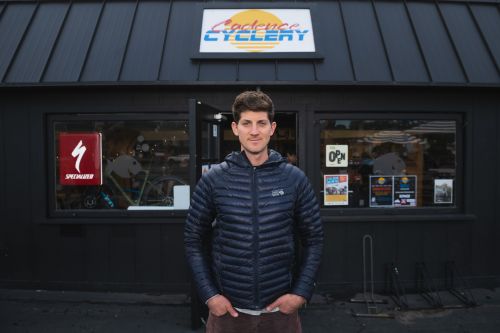A version of this feature ran in the September issue of BRAIN.
BOULDER, Colo. (BRAIN) — For our September magazine edition, we asked our State of Retail panel members: What would be your TED Talk about bicycle retail? What do you wish someone had told you before your bike industry career?
CARSON CITY, Nev: Win Allen, owner Win’s Wheels
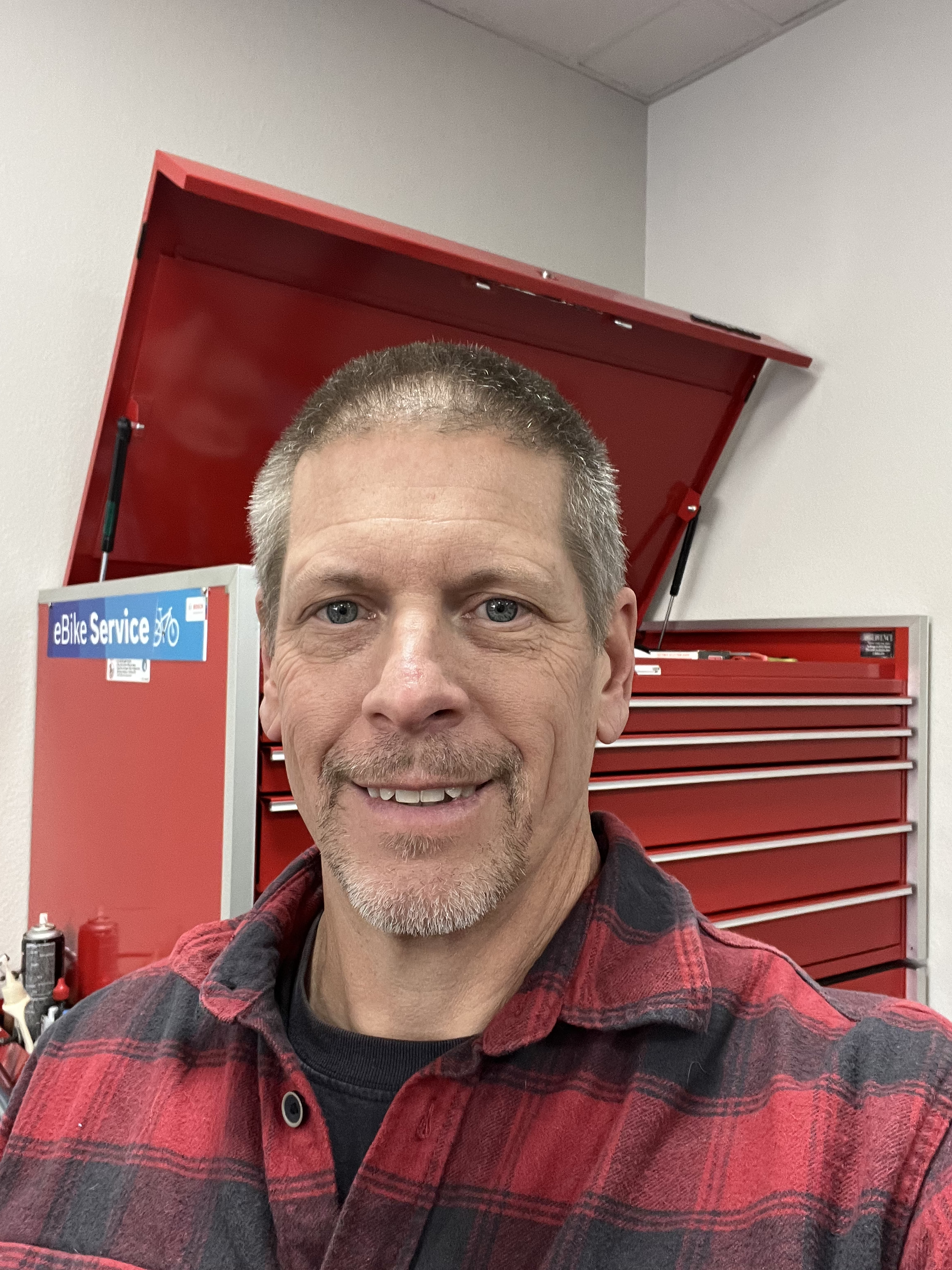
There’s a lot more sweat equity required to have a successful business/shop than it may appear to employees or to someone new to the industry. My advice to shop owners and managers is to support your service departments. If done properly, the service department is a huge asset. If done wrong, it's a HUGE liability. It’s the backbone of the entire shop. Without it, you don't have any bikes to sell, nor do you have as good of a chance to sell upgrades or keep clients coming back for high-margin items like labor and service parts. A properly staffed and supported service department with low turnover and employees that are current on new and old tech is a client's dream. Shop owners need to be able to trust their service departments, and tell and show all their employees they are appreciated and part of a "family." I've found that when employees are appreciated and working together for a common goal, they want to work harder and do a better job. Things usually get done faster with higher quality, and there tends to be less infighting.
ENCINITAS, Calif.: Steve Yeager, owner Cadence Cyclery
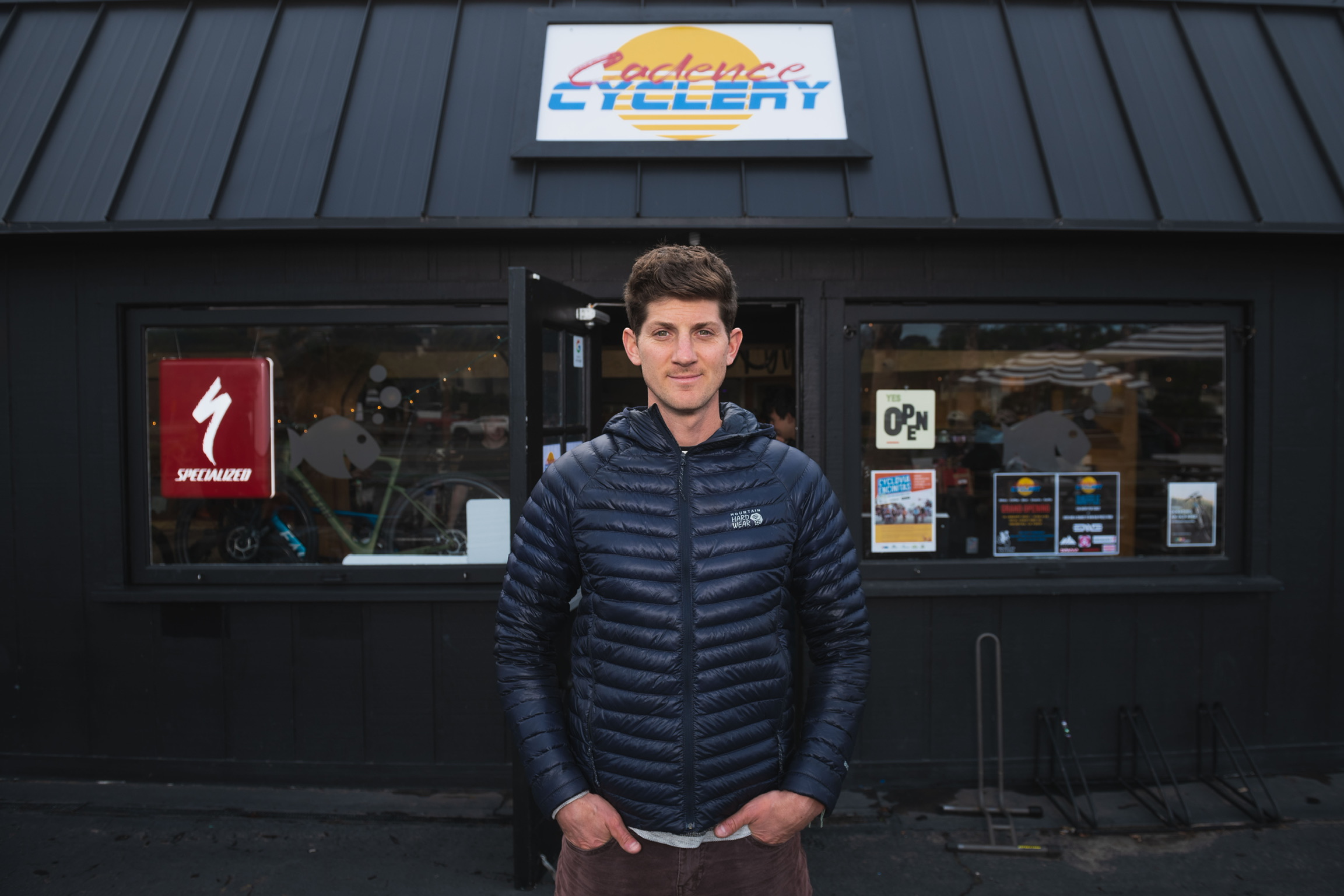
The business of bicycle retail is more about managing people and personalities than anything else. One of the fundamental pieces of advice I’d share about owning or managing a shop is that it’s necessary to really understand your customer base and understand that the shop staff has a large impact on how customers view the store. Customers need to feel comfortable and want to interact with shop staff, so it’s critical to pick staff members with personality and social understanding so you can create a safe, fun, and welcoming environment.
CHAGRIN FALLS, Ohio: Jacob English, owner Mountain Road Cycles

If I had to say what I wish someone had told me, it’s “Watch out, you're going to be a lifer!" I feel I was given all the advice and training in all aspects of the industry from the best out there — from high up in the industry to local owners. My advice is to learn from the people you encounter, and soak it up. Buying and forecasting are probably the most important things to learn. Doing them correctly gives you the best chance to be successful. Treat clients, employees, and competitors well, and be fair. Be part of the community. Learn to adapt. Everything from sales trends, to programs, to employees will change. It can be year to year or month to month, but it will change. Roll with the times and remember to cover the important costs such as wages, rent, etc. Remind yourself to have fun and find fun. We’re in this field for a reason.
CHICAGO: Gillian Forsyth, owner BFF Bikes
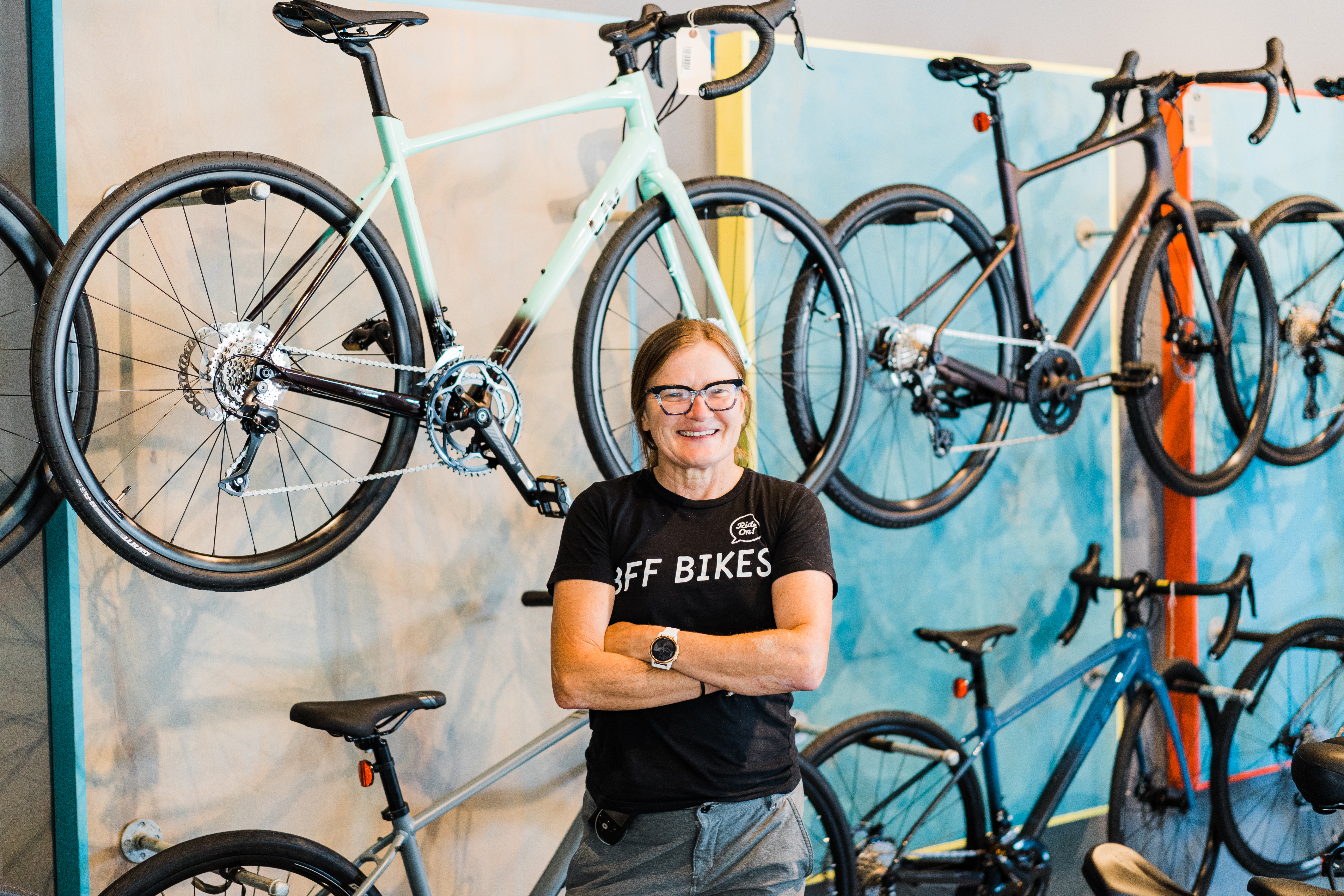
It’s a tough one, but I would share that owning a shop is hard work, both physically and mentally. It is not profitable. An owner needs to know their numbers and use their data to set and measure KPI goals. Things like margin, inventory turnover, and attachment ratio are just as important as the bottom line, and owners should not be afraid to raise their prices. Every dollar helps, especially for a small shop. It’s necessary to get a margin calculator and make sure accessories and parts are priced appropriately for the shop to survive. And be mindful of service efficiency; every dollar increase in hourly rate recovered is a dollar to the bottom line. I would recommend that owners and managers join the National Bicycle Dealers Association — it’s where they can learn how to improve their profitability. Good systems and processes must be in place and reviewed constantly. Things have a habit of falling apart when not monitored. Lastly, make your business a great place to work, support your community, and people will find you.
NEWINGTON, N.H.: Steve Gerhartz, owner Seacoast E-Bikes
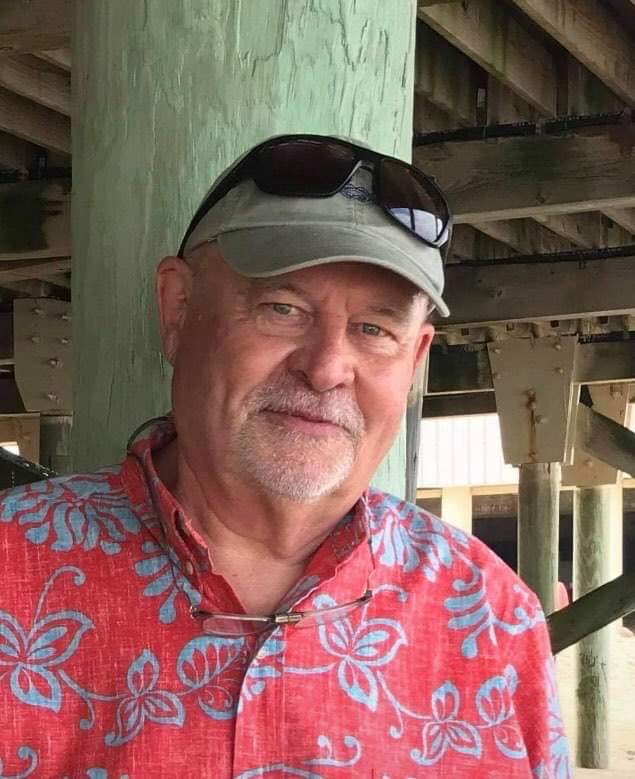
Someone once asked the question, "How do you make $1 million in the bike business?" The answer is, “Start with $2 million!” I would tell prospective shop owners to make sure they use data to make purchasing decisions and pivot as much as possible to selling electric bikes. The bicycle industry is very unsophisticated and antiquated compared to other industries. There is a complete lack of transparency for the product pipeline. Some B2Bs are improving but have a long way to go. The inability to connect customers to a simple CRM is nonexistent. For years, senior management has been ex-racers, designers, and "bike bros." The world has changed. This business is no longer, as my good friend Bob Margevicius of Specialized recently pointed out, relational; it's transactional. Rides, clinics, and other shop-hosted events will only go so far. Targeted marketing, data analysis, and hiring the best people you can find that share your vision is what will propel you forward.
WINTHROP, Wash.: Julie Muyllaert, co-owner Methow Cycle & Sport
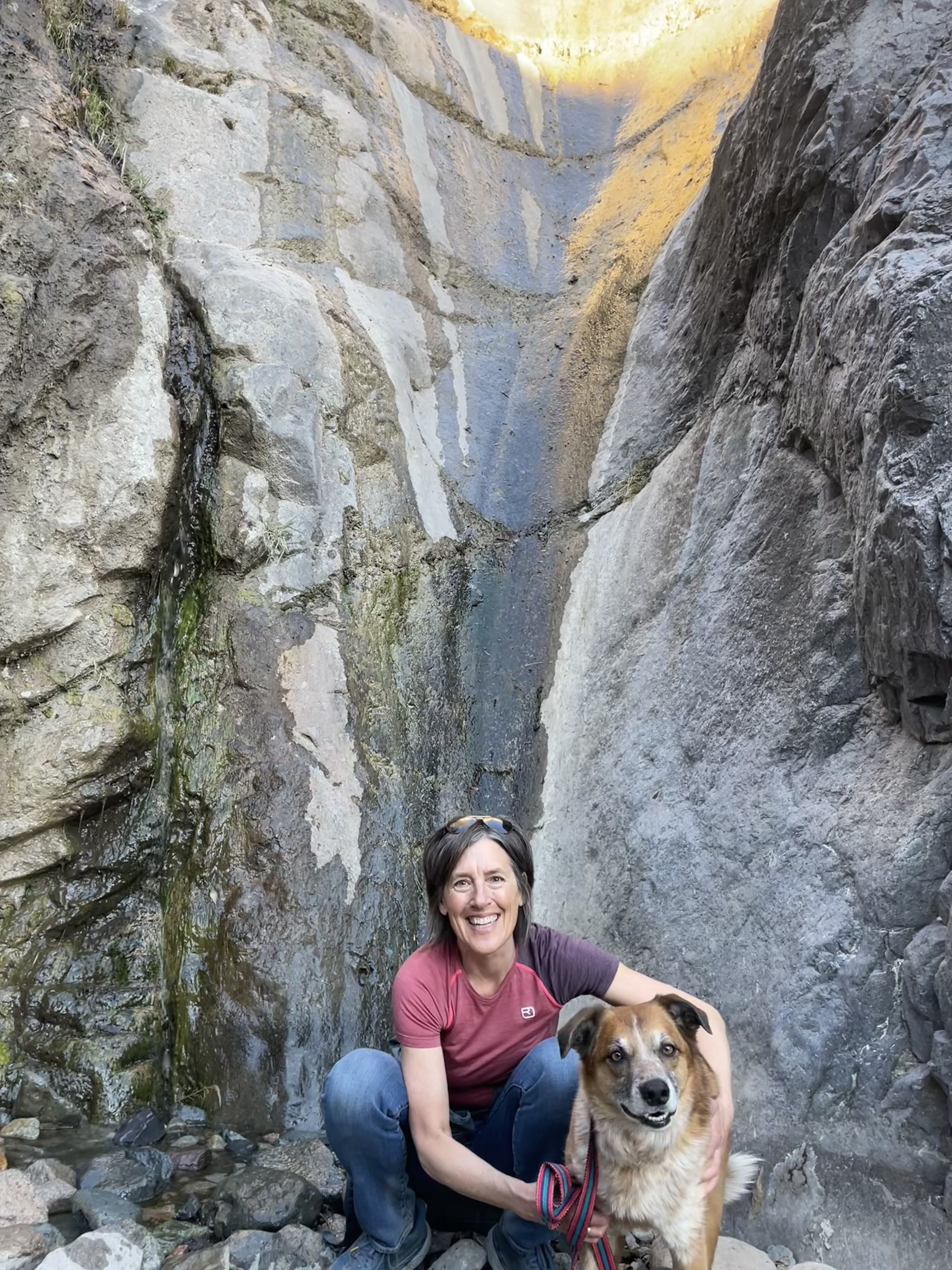
Bicycle retail is a dynamic business that requires diverse skills and operates in an industry and economy that is continually in flux from internal and external pressures. It's important to bring your passion and to be committed to continuous learning: about business management, marketing, buying, customer loyalty, vendor relationships, social media, product development, and so much more. It requires creativity, and fluency in numbers and data. Largely, it is a very rewarding business … supporting people in meeting their goals, having fun, getting and staying healthy, and helping to build community around cycling. It is also at times very challenging … responding to the demands of vendors, recruiting and managing employees, forecasting customer demand and desires, adapting to changing economic and environmental conditions, and running a profitable business. What we’ve learned? Ask good questions. Listen well. Meet people where they're at. Be creative, generous and flexible. Make space for things that bring you joy. Your to-do list will be there waiting after your ride, time with family and friends, vacation. Ask for what you need. Be clear, firm, and kind. Always strive for excellence.
AUSTIN, Texas: Audrey and Mark Sze-To, owners Electric Avenue
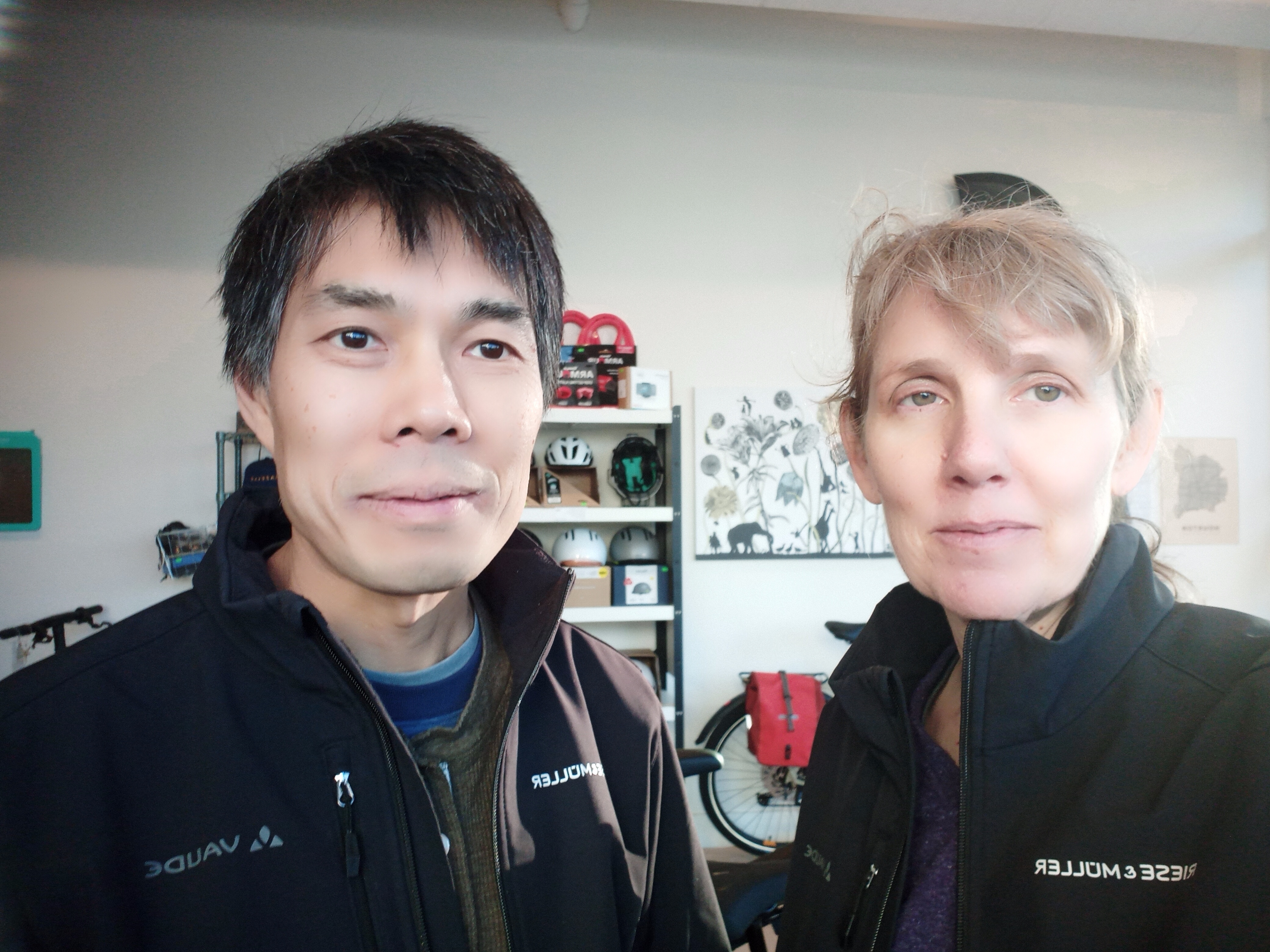
It's usually a good idea to favor investing in quality over cheapness in terms of the bicycles, parts, and accessories that you sell (or rent out) for long-term sustainability of your business model. Owners should be careful in considering the advice of customers who wish for you to provide unsupervised rentals or discounts. In this business, we’ve learned to always have patience with customers, and try to educate them articulately and truthfully, as often as possible. This results in better long-term sales prospects. It's a lot of work but worth it and pleasurable if you participate in the lifestyle yourselves. In other words, it becomes a better investment of your time and life, if you go ahead and walk the talk, or ride the talk. Be candid about bicycling experiences, and view other alternative (or non-car) forms of transportation as your allies. This can help your business and provide depth to your place in the consumer market.
LITTLE FALLS, Minn.: David Sperstad, owner Touright Bicycle Shop
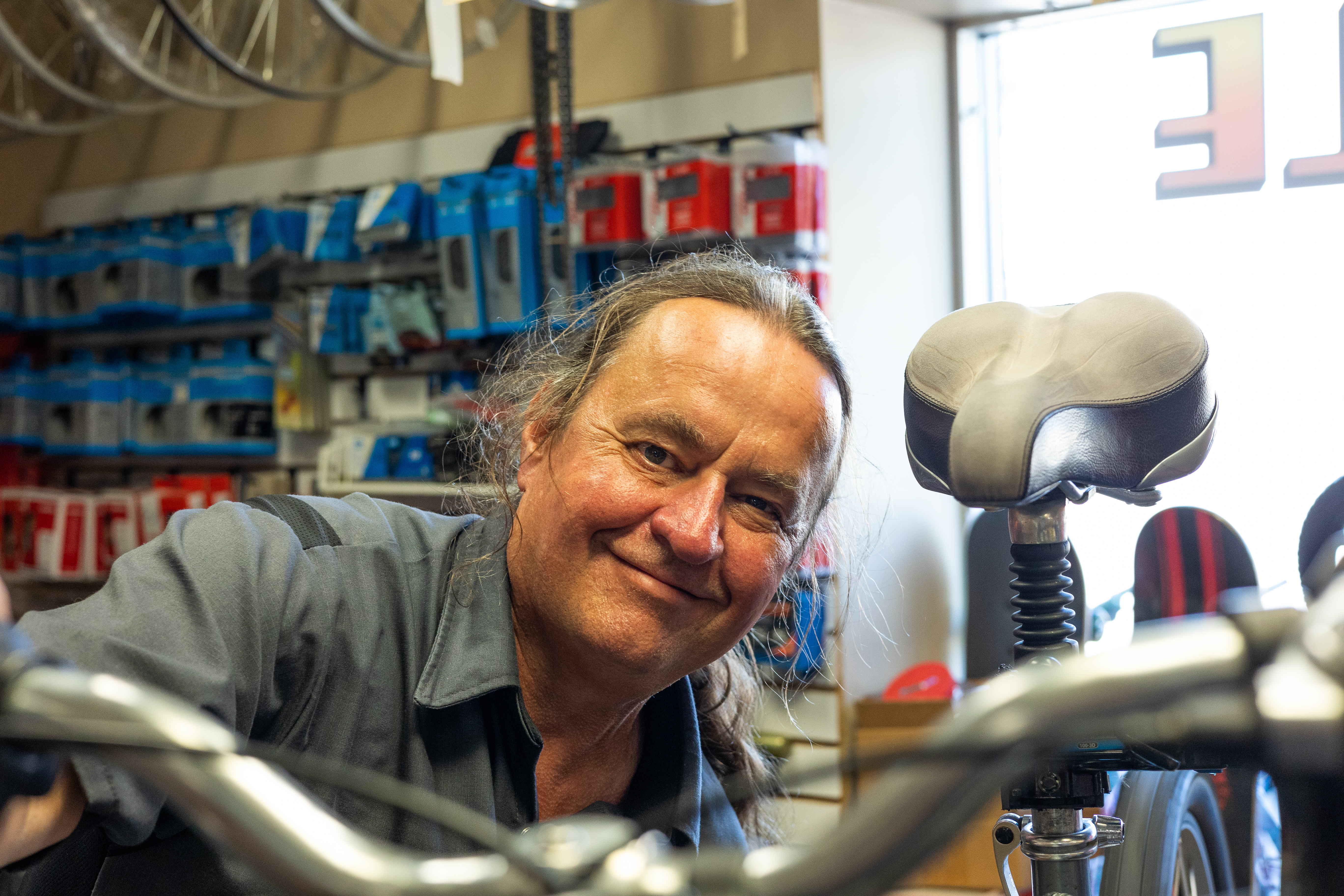
Enjoy the ride! Truly, I mean that. If you love bike riding yourself, sharing your love will help others to also love the ride. The joy on customers’ faces is, as they say, "priceless." I wish I would have opened a store 20-plus years ago. I would advise prospective owners to listen to their customers and don't try to sell people anything. Help them get what they need to make their ride even more enjoyable. Everyone doesn't have to be a “cyclist” after all, some are just “bike riders.” Not everyone needs a $1,000 (or more) bicycle. Maybe all they want to do is ride with the family or ride out for ice cream or coffee. Trust that you know your customers more than the sales reps do. Buy with your customers and your area in mind, not the sales rep or the brand. Trust your instincts and your passion, not only for cycling, but for serving your community to help ALL reap the physical and mental benefits the sport provides. Be yourself and share your enjoyment and love of all things bike.
ALAMEDA, Calif.: Larry Tetone, event coordinator Alameda Bicycle
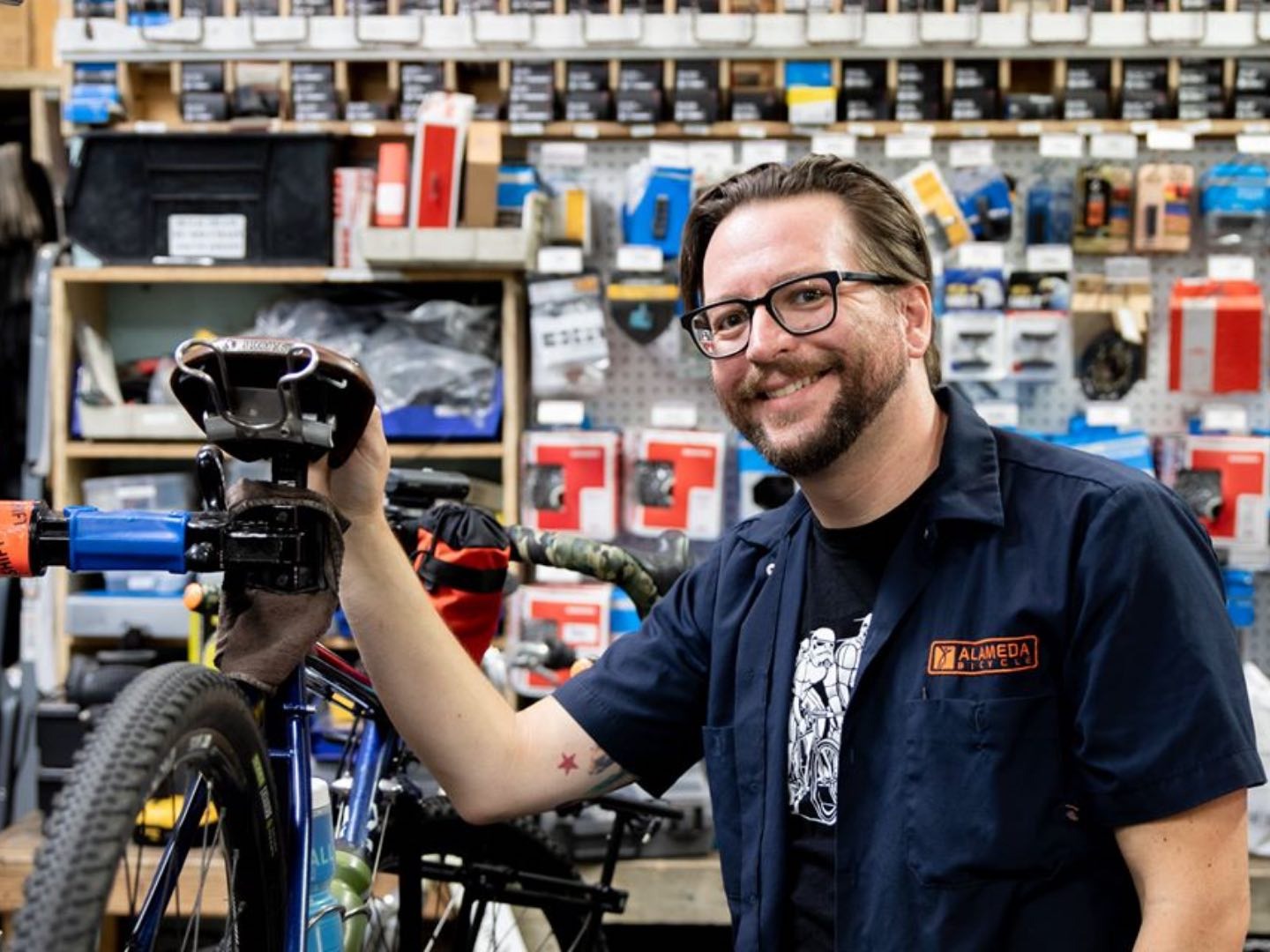
This job has to be a labor of love. With few exceptions, no one is getting rich here. If you’re planning on being successful in this job or business, there needs to be an alignment of your values with your community and team members. Otherwise you’ll bounce off the work. In 2024, a bike shop needs to be more than just a transactional exchange; it has to enrich its customers' experiences outside of the shop. Service, events, classes, and advocacy are all means to express issues and address causes that you and folks living near you value. Owners should try new things, examine existing products, lean into what’s working and jettison what’s not. At least listen to the start of any cold call, because one out of 20 will probably be worth your time. Talk with your team about the product. If they like it or want to try it out in the shop, then it’s probably worth a shot. Trust your team's judgments. Don’t be afraid to ask for more — terms, margins, etc. — and don’t be afraid to say no when you need to. Value everyone’s time and knowledge, and make sure you and your shop get paid appropriately for it. Find good talent and pay them well. Be kind to folks and ask folks who aren’t kind in return to leave.

